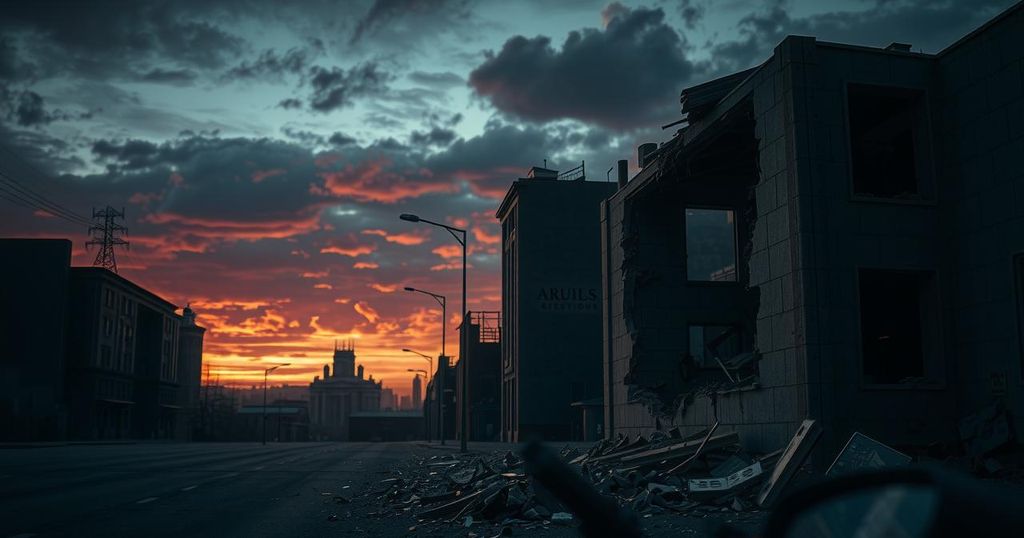Ecuador Election Tackles Escalating Narco Violence
Ecuadorians voted in a pivotal election addressing rising cartel violence with President Daniel Noboa seeking reelection amid significant challenges. His main rival, Luisa González, advocates for a shift in approach regarding drug violence and security policies. The election results could lead to substantial changes in national strategies and international relations.
Ecuadorians participated in an election on Sunday aimed at addressing the escalating violence linked to drug cartels. This critical decision is anticipated to have substantial implications for the nation and the global drug trafficking landscape. Daniel Noboa, serving as president at just 37, seeks reelection after a turbulent first term marked by significant challenges, including drug-related violence and economic difficulties.
The country is embroiled in conflict among international cartels, all vying for control over trafficking routes stemming from illicit coca farms in Colombia and Peru. Noboa’s initial 14 months in office were overshadowed by escalating crime, economic stagnation, and accusations of power misuse amidst rising living costs. Many citizens express dissatisfaction; for instance, one individual remarked on the deteriorating living conditions, stating, “Every day we’re worse off, there is not enough money for anything, life is insecure.”
Despite his administration’s struggles, Noboa is seen as the most popular politician in the country, largely due to his image as a youthful outsider and his aggressive policies against drug trafficking. During his campaign, he made headlines by appearing alongside heavily armed military forces and recently announced measures to enhance security, including military deployment and border closures during the election.
However, the challenge before Noboa remains substantial. Ecuador has become a haven for notorious international criminal organizations, leading to a notable increase in violent crime, with homicides soaring over 400% in just five years. The surge in violence has profoundly impacted political stability, leading to widespread fear, displacement of citizens, and a precarious economic situation.
Noboa is contending against multiple candidates, with Luisa González emerging as his primary rival. Backed by influential former president Rafael Correa, González has gained traction among constituencies affected by violence and has criticized Noboa for alleged human rights violations. She has accused him of threatening democratic principles, declaring, “I will defend at all costs my country’s democracy, which today is at risk.”
Experts predict that a González victory could lead to a transformative approach in handling drug violence and international relations, contrasting with Noboa’s stringent tactics. González has advocated for negotiations with certain factions and emphasized the importance of honoring human rights, explicitly criticizing Noboa’s close alignment with U.S. military interests.
The election results will determine whether either candidate achieves the necessary 50% of the vote or exceeds the 10% margin needed to avoid a runoff in April. Polling stations are open from 7 AM to 5 PM local time for both presidential and legislative elections, with mandatory participation from voters.
The election in Ecuador is unfolding amid a surge in drug-related violence, reflecting the nation’s position in international drug trafficking. President Daniel Noboa’s term has been characterized by significant challenges, including a dramatic rise in homicides linked to cartel activity and economic difficulties impacting citizens. The political landscape is heavily influenced by ongoing violence, with numerous candidates vying for power, including Luisa González, a prominent challenger supported by a former president. The outcome of this election will likely shape the future approach towards drug violence and international collaborations.
The Ecuadorian election serves as a critical juncture as citizens weigh their responses to rampant drug violence and its repercussions. Daniel Noboa’s administration faces scrutiny over its handling of security and economic stability, while Luisa González represents a potential shift in strategies to combat these challenges. The results will undoubtedly impact local communities and the broader international landscape of drug trafficking.
Original Source: www.batimes.com.ar




Post Comment